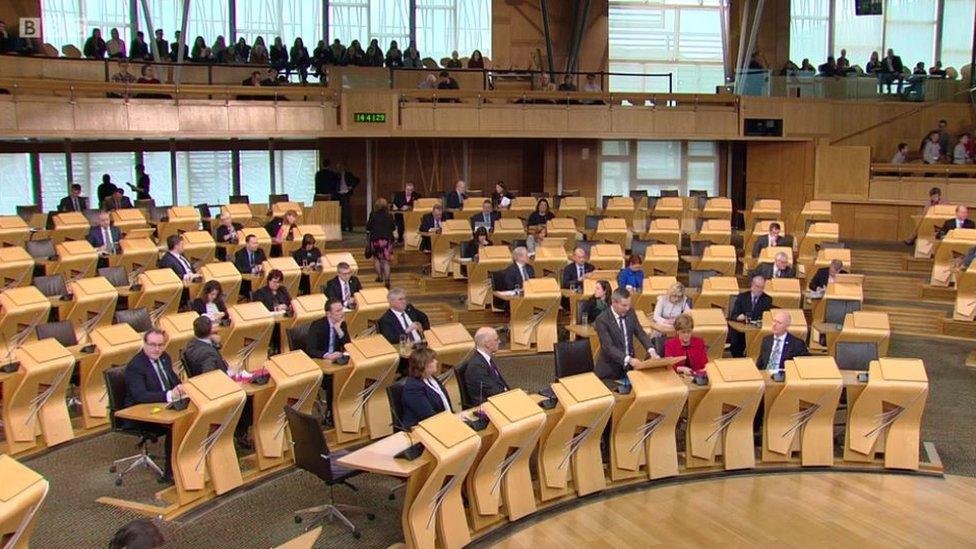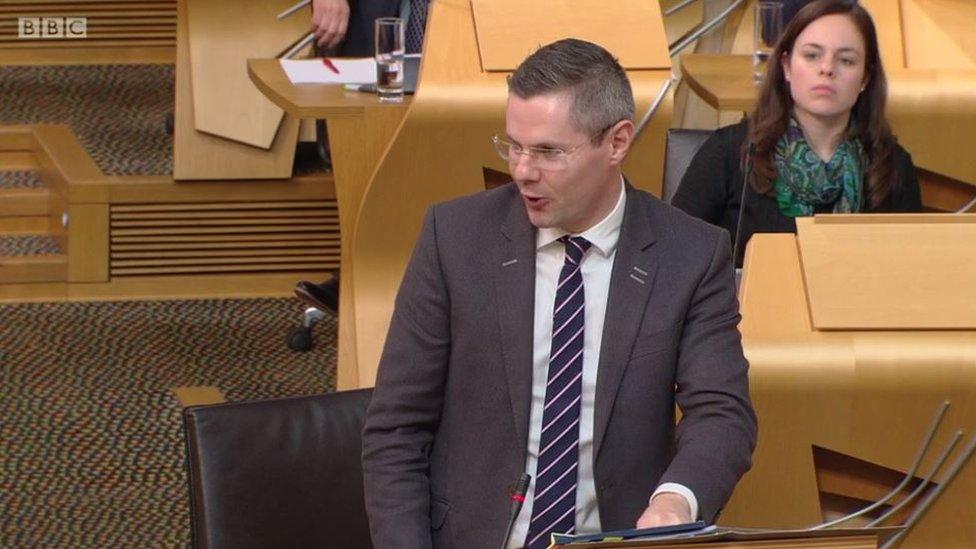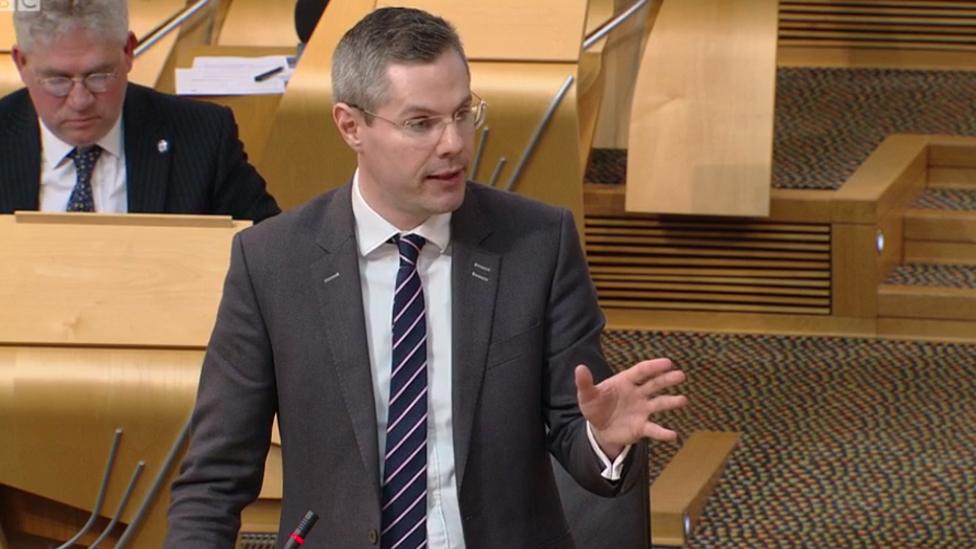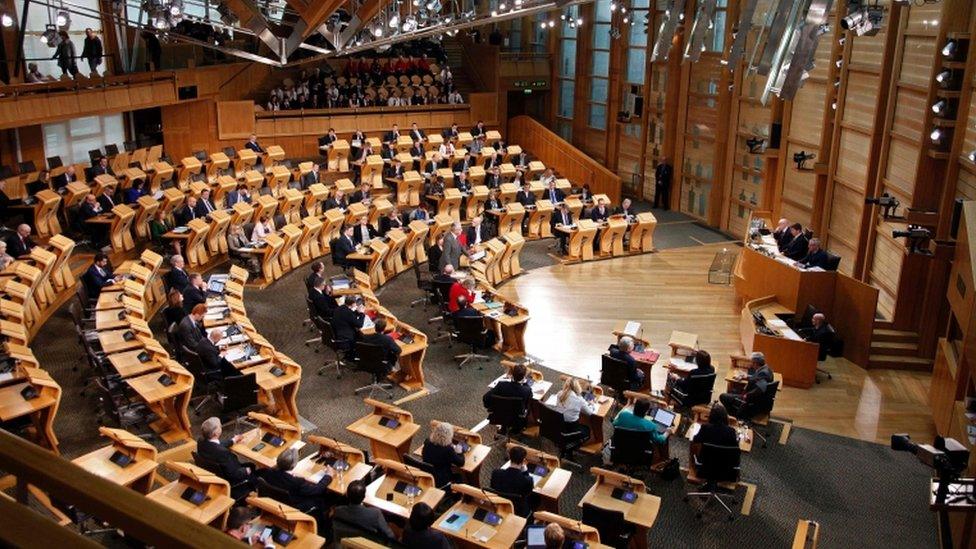Taxing talk of budgets and business
- Published

Derek Mackay made a ministerial statement after coming under pressure over business rates
Nothing concentrates ministerial minds more than upset voters. Especially when there is an election pending. In Scotland, there is always an election pending. Or a referendum.
The SNP's calculation was that Labour intended to attack them at the local elections in May with claims of service cuts. And that the Tories planned an onslaught founded upon rises in business rates.
These factors are, in part, the motivation behind two significant announcements during the Holyrood budget process which reaches its culmination this week.
Firstly, the Finance Secretary Derek Mackay struck a deal with the Greens in which tax revenue was directed to local councils.
Mr Mackay had repeatedly insisted that local services more generally were being protected. However, he was content, politically, to divert cash explicitly to local authorities.
'Standing up for Scotland'
This is emphatically not the end of Labour's campaign on this issue. Speaking today during the debate on the income tax resolution, the party's deputy leader Alex Rowley argued that opposing the Scottish government on this element of policy was "standing up for Scotland".
But ministers believe they have provided some effective ammunition for SNP candidates in May. Which brings me to the second financial discussion at Holyrood today.
Mr Mackay announced a £44m package of further assistance to peg back business rates increases, focusing upon the hospitality industry, the North East and the renewables sector.
This has been a relatively slow-burn row - as one business after another provided a cumulative chorus of protest at the impact of revaluation, amplified by the Conservatives in particular.

Derek Mackay has directed extra support towards businesses in the North East in particular
Those with a longer memory will recall that a domestic Scottish revaluation in the 1980s built steadily into a furious controversy, ushering in the Poll Tax and, eventually, the departure of Margaret Thatcher.
These issues have bite. This time around, the initial narrative from Scottish ministers was that the revaluation was not their responsibility but was run by independent assessors. Which is true.
And that businesses could appeal. Which is true. And that ministers had already acted with support measures which meant that seven out of ten firms face no increase or will benefit from cuts or will pay no rates at all. True. All true.
Alongside such truth, however, one might pose another verity or two. Folk don't like paying tax. They hate big increases. And they particularly hate any suggestion that they are being unfairly singled out.
In short, if you are one of the seven listed above, then you maintain a diplomatic silence. If, on the contrary, you are one of the three, then you yell. Loudly.
Hence today's action. Does it end Conservative complaints? No. Murdo Fraser derided ministers as "asleep at the wheel" while their vehicle careered towards a crash. But, again, ministers believe they have supplied a defence mechanism to candidates in May.
- Published21 February 2017

- Published21 February 2017
